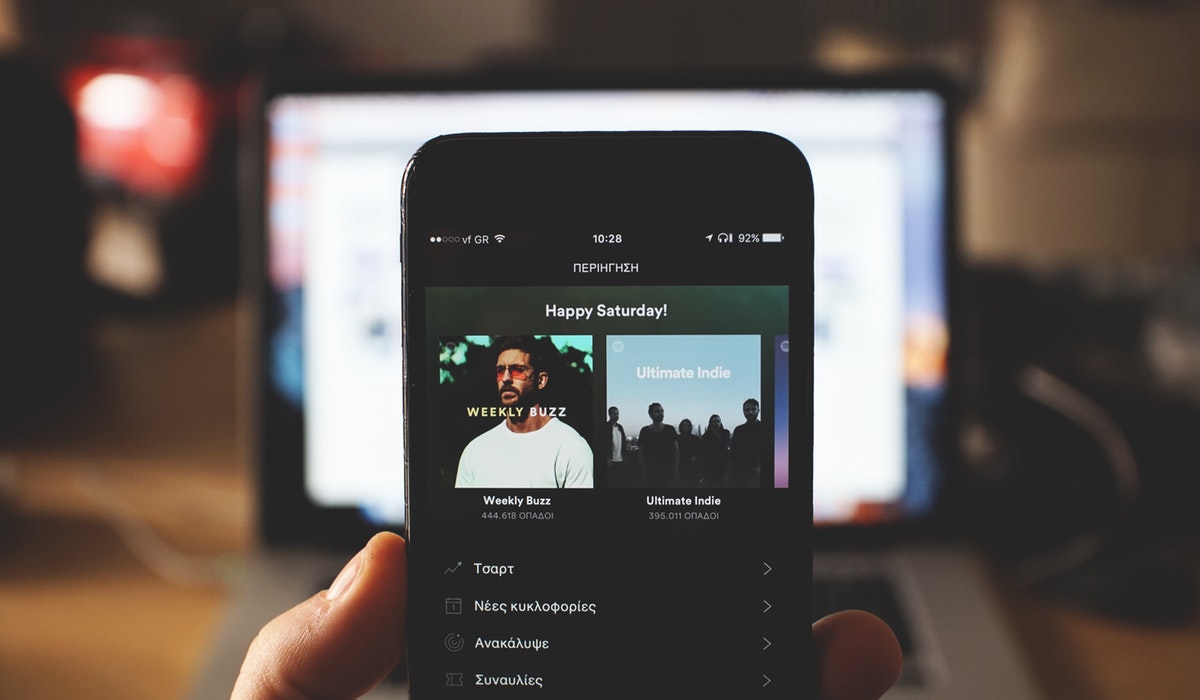Apps
Youtube Gets Sued For Alleged LGBTQ Rights Infringement

A group of LGBTQ rights defenders in the US recently arraigned Google and YouTube in federal court. This band, including a handful of LGBTQ social media celebrities such as Chase Ross, Bria Kam, Chrissy Chambers, Brett Somers as well as the executives of GlitterbombTV.com, Alleges that YouTube’s ‘ad-friendly’ policies were actually not friendly to them in all ramifications.
The litigation brought before the US district court in California accuses YouTube of such activities as limiting video contents tied to famous LGBTQ identities.

The Emerging Rights War
Following the recent developments, a lawsuit was filed on Tuesday against YouTube and its parent company – Google. These LGBTQ users leveraged upon the company’s purported ideology of “creating a platform of self-expression for all” and making a shit-load of money while at it. This perception of ‘freedom of expression’ and ‘freedom of information’ was however received differently by LGBTQ users, once they sensed a pre-planned discrimination towards the contents they upload on YouTube.
Accordingly, the court order highlights that YouTube engaged in;
“unlawful content regulation, distribution, and monetization practices that stigmatize, restrict, block, demonetize, and financially harm the LGBTQ+ Plaintiffs and the greater LGBTQ+ Community.”
The Plaintiff acknowledged that Google/YouTube supervises over 95% of all the digitally distributed video-based contents on a global scale. And as such, YouTube is registered as the largest for-profit channel dedicated to free speech and expression in the history of the world.
Furthermore, the Prosecuting party maintains that the Defendants generated an excess of $25 billion on an annual basis. Claiming that such profits are derived from regulating, distributing, and monetizing the free speech and expression of the 2.3 billion YouTubers worldwide.
Google Apology
Still, Google upholds that it has always been a silent propagator of LGBTQ rights in the past. Demonstrating this, Google asserts to have advocated for gay rights around the world and officially sponsoring the San Francisco Pride parade. Nonetheless, this is not the first time Google/YouTube would be charged with such malfeasance.
The social media giant took to Twitter during the 2018 ‘Pride Month’ to relay an apology with regards its biased ads sharing policies. But this time, the LGBTQ community does not seem to care about Google’s apology but rather a call for the restructuring of Google’s business model.
Apps
Instagram Finally Launches The Much Anticipated ‘Restrict Mode’ Feature

Just as WhatsApp plans to incorporate a ‘self-destruct’ feature for secret chats, its sister company – Instagram also embeds a new component termed the ‘Restrict Mode’ to shadow ban Toxic Users. This recent development comes as a result of a 2018 research conducted by Pew Research Center indicating that fifty-nine percent (59%) of US teens were been subject to cyberbullying, according to CNN.
Hence the company’s Head – Adam Mosseri, disclosed in a statement earlier this year establishing that Instagram would “lead the fight against online bullying”. Afterward, that statement was eventually confirmed on Wednesday, in a press release by the leading social platform. Where it was explicitly stated that;
“Restrict is designed to empower you to quietly protect your account while still keeping an eye on a bully.”
The Head of the social media network also announced the birth of this new tool in a tweet earlier today. Having that this new feature has been in the testing phase since July, the ‘Restrict Mode’ functionality at present provides Users with the options to restrict another User either by simply swiping left on their comment – a similar procedure used to report Users on Facebook, through their ‘profile page’ or at best from the Subscriber’s settings privacy tab – which is in semblance to ‘Blocking a Number’ on WhatsApp.
Subsequently, a ‘Restricted’ User’s comment on your posts would only be visible to them and nobody else. Additionally, notifications become deactivated whereas direct messages from banned Users enter into a pool of message requests. And in the case where these messages are approved and read, the banned Users won’t be duly notified. Also such Users won’t be able to see the ‘active status’ of any User that had earlier banned them.
While the ‘Restrict Mode’ does not actively block the User thus the phrase ‘Shadow Ban’. However, it conveniently refrains such Users from certain access to your page or posts without subsequent permissions. The feature extensively borrows Twitter’s ‘Muted Reply’ approach. And as such comments from banned Users can still be visible but not readable to the general public as it would bear a ‘Restricted Comment’ tag. Granting the Account Owners the opportunity to either approve, delete or ignore the comment.
Even though the introduction of this neoteric tool is intended to inspire teenagers to stand up against online bullying, some experts still fear that this new instrument could turn out to be detrimental instead of its purposed use. As is the argument presented by Jennifer Grygiel – A Social Media Expert and Assistant Professor at Syracuse University and Dr. Sameer Hinduja – Co-director of the Cyberbullying Research Center and a professor at Florida Atlantic University. Both of them called out to Instagram to publish the results of these ‘anti-bullying’ measures. Dr. Hinduja further postulated that;
“We need to see how it plays out at scale, and whether a critical mass of Instagrammers employ the feature.”
According to another Social media Analyst, Randi Priluck – A Professor and Associate Dean on Social Media and Mobile Marketing at Pace University, Instagram is implementing a great tool, nonetheless, the success of this new development is dependent on a number of factors. In his words;
“The fact that Instagram is doing something is better than nothing, But the question is: How much will this help?”
Apps
Spotify Subscribes to Apple’s SiriKit API to Embed Siri’s Advanced Functionality Into its App

Imagine a music app that allows you to play songs just by ‘calling out the song title’ from your playlist. Awesome right?
Well, that becomes the case with the new upgrade on the Spotify app on Apple’s IOS 13.1. Following the recently added features on Siri such as the ability to launch an app with the voice command, advanced guidance on the map, tuning in to a radio station among many others. On Friday, the digital music service providers disclosed that it would be incorporating ‘Siri Support’ specifically for its Users on IOS in the nearest future.
Eventually making Spotify the foremost third-party app that could be operated with ‘Siri’s Voice Assistant’. According to an interview conducted by Verge with a Spotify Associate who refused to comment in details but confirmed this development with a statement adding that;
“At Spotify, we routinely conduct a number of tests in an effort to improve our user experience, Some of those tests end up paving the path for our broader user experience and others serve only as an important learning. We aren’t going to comment on specific tests at this time.”
Evidently, the Siri support comes as part of the update on Apple’s IOS 13 and by means of the SiriKit API, Spotify developers were able to embed Siri’s functionality into the Spotify app. Consequently with this new added ‘Siri’ functionality, Users would be able to not only launch the Spotify app but also navigate through and play songs from playlists, albums, and podcasts on the app just by voice commands.
Although this feature was embedded extensive to work on all Apple devices having IOS 13.1 excluding the Apple Watch since IOS wearable devices does not fraught with a devoted Spotify app. Given that the Siri Support on Spotify is currently in its beta testing phase, this innovation would only be available on the latest beta version of Spotify and as such still ships in with a few bugs. Such as trying to play a podcast which always defaults to playing music.
This Siri on Spotify functionality would grants Users an advanced music experience on the go. Subsequently placing the Spotify music app on the same spot as the Apple Music in terms of competing for Siri’s Media player Support.
-

 Cryptocurrency5 years ago
Cryptocurrency5 years agoRipple Sends $26 Million Worth of XRP to Jed McCaleb, XRP Army Fears Another Dump in Price
-

 Cryptocurrency5 years ago
Cryptocurrency5 years agoChina Is Set To Launch A Legal Cryptocurrency In The Second Half Of 2019
-

 Cryptocurrency5 years ago
Cryptocurrency5 years agoHODLers Plead With Ripple Inc. Not To Dump XRP Tokens Anymore
-

 Blockchain5 years ago
Blockchain5 years agoThe Future Of Publishing With Blockchain, Steemit vs. Publish0x
-

 Cryptocurrency5 years ago
Cryptocurrency5 years agoIntel’s 10th Generation Processors: A Hard Pick From a Buyer’s Point of View
-

 Cryptocurrency5 years ago
Cryptocurrency5 years agoHow to Exchange and Withdraw Digibyte to Bitcoin/Ethereum on any exchange platform
-

 Cryptocurrency5 years ago
Cryptocurrency5 years agoWhy Bitcoin Is Better Than Other Cryptocurrencies
-

 Cryptocurrency5 years ago
Cryptocurrency5 years ago40% Of Bitcoins Are Stored On Wallets With A Balance Of Over 1000 BTC















